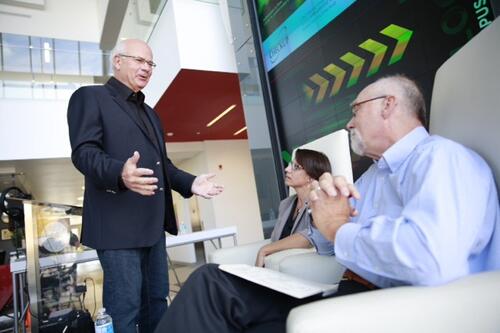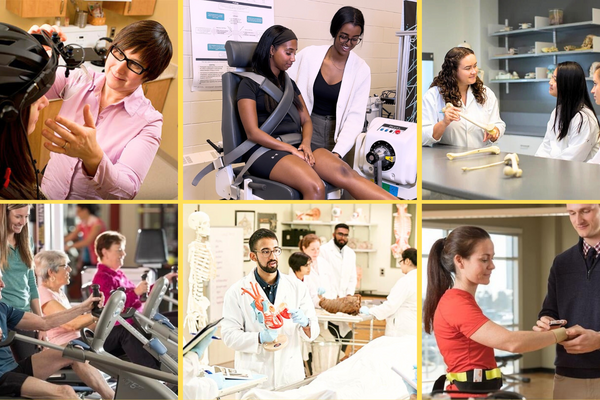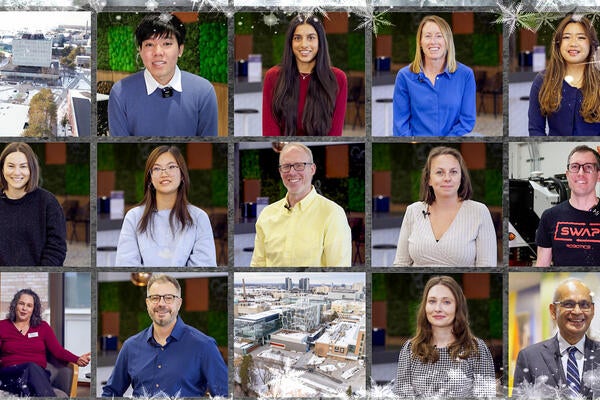
Do libraries still matter in the age of Google?
At University of Waterloo’s Stratford campus, Peter Mansbridge asks Canada whether libraries are still central to research

At University of Waterloo’s Stratford campus, Peter Mansbridge asks Canada whether libraries are still central to research
By Wendy Philpott Faculty of ArtsDo libraries still matter in the age of Google? Do we need to collect and keep printed books, and pay to maintain the buildings that house them?
These were questions CBC host Peter Mansbridge put to his audience from Waterloo’s Stratford Campus, for a special remote broadcast of Cross Country Checkup.

Host Peter Mansbridge chats with panelists Christine McWebb and Ken Roberts.
The popular radio show, which was trending on Twitter by the show’s midpoint on Sunday September 28, was staged against the backdrop of the campus’ three-story MicroTile Wall, which displayed a steady stream of tweets.
When Mansbridge asked if libraries are still central to research, Christine McWebb, a professor and director of academic programs at the Stratford campus replied: “Absolutely. But the library’s role is changing and expanding from acquisition and storing of information to curation and quality control.”
The broadcast at Waterloo’s Stratford Campus came about when McWebb previously appeared on CBC and mentioned the University of Waterloo’s digital humanities campus in Stratford – which does not have library.
“This campus is a little different than most," said CBC producer Charles Shanks. “That’s why we’re here today.”

Most audience members and callers agreed that libraries still matter, and while they need to evolve with technology, they remain valuable as public spaces where knowledge is shared and people can connect.
Certainly the importance of keeping libraries human, was key for many. Spontaneous applause broke when Yifei Zhao, a graduate of the Master of Digital Experience Innovation program, said librarians provide the power of a brain in the research process. He added that the library environment lets people focus, which is important in a world of constant distractions.
Ken Roberts, former chief librarian of Hamilton Public Library and now on the Expert Panel of The Status and Future of Canada's Libraries and Archives, said the entire Stratford Campus is essentially a library with its many project spaces with digital tools available.
McWebb said, “This is an important and timely discussion not only for researchers and students but for all of us as digital access to information continues to increase.” Prompted by Mansbridge to give her final thoughts, McWebb stated that libraries are now spaces where “knowledge is transformed into creativity.”

Read more
From optometry and pharmacy to public health and therapeutics, Waterloo alumni are powering Canada’s health care sector

Read more
A winter holiday message from President Vivek Goel

Read more
Researchers awarded funding to investigate ecology, climate change, repatriation, health and well-being through cultural and historical lens
The University of Waterloo acknowledges that much of our work takes place on the traditional territory of the Neutral, Anishinaabeg, and Haudenosaunee peoples. Our main campus is situated on the Haldimand Tract, the land granted to the Six Nations that includes six miles on each side of the Grand River. Our active work toward reconciliation takes place across our campuses through research, learning, teaching, and community building, and is co-ordinated within the Office of Indigenous Relations.